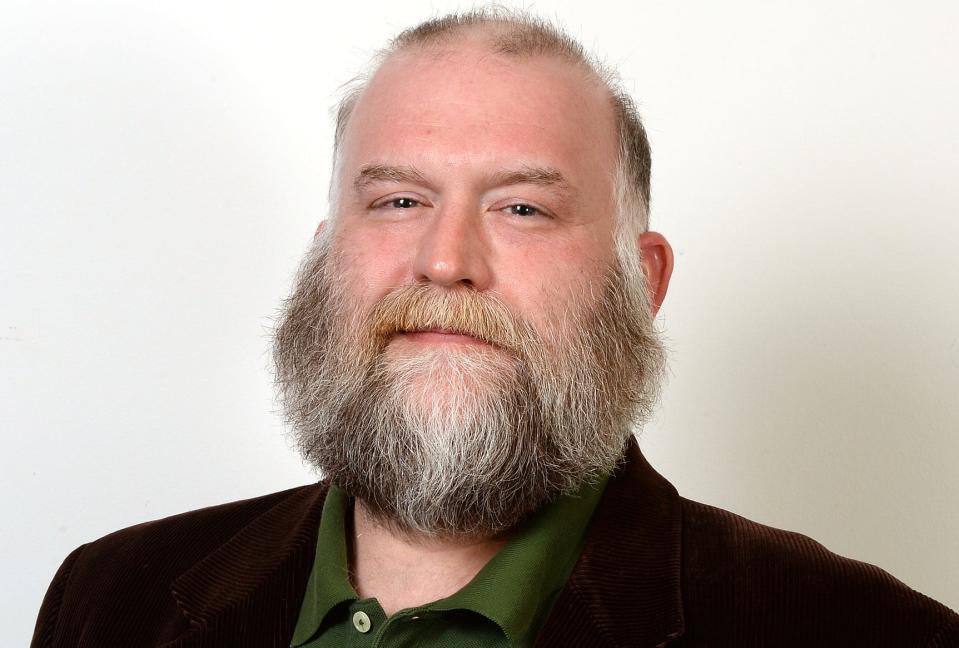David Murdock Column: On the 'foreign country' of the past
Sometime over the course of the last week, I ran across a memorable quote. How memorable? I remember the quote but not where I saw it: “The past is a foreign country; they do things differently there.” It’s the first line of a 1953 novel by the English writer L.P. Hartley, “The Go-Between.”
Well, that’s what Google says. I have no idea. Not only had I never heard the quote — that I recall — I’ve never heard of the book or even the writer! Evidently, I’ve missed something along the way. The book seems to be fairly well-known in some quarters. It was made into a movie twice, and there are several stage adaptations of various kinds. That’s according to Wikipedia. Again, I don’t know. The quote itself shows up in several citations over the years.

Now, usually when I hear something like that, I order the book. It’s still in print, obviously. But I paused before I did, for one simple reason: I don’t think the book can be any more entertaining to me than the first line! Eventually, I may order and read it, but just not right now.
As I’ve related on numerous occasions, I love quotes and proverbs and maxims and aphorisms and just anything of that kind — short lines that seem to encapsulate some big idea. When my eyes first followed the words on the page, my mouth silently uttered, “Yes! That’s it!” Not only is the past a foreign country where they do things differently, I don’t even speak the language sometimes.
Even when I do speak the language, sometimes I still don’t know what the past is talking about. Here’s what I mean. Another article I read last week solved a decades-long riddle from a book for me. An article in The Atlantic by David Merritt Johns titled “Nutrition science’s most preposterous result” outlined the possible nutritional benefit of … ice cream, believe it or not. That’s one thing, but it led to another article from The Atlantic, “How ice cream helped America at war,” written by Matt Siegel back in 2017. That article outlines the military’s extraordinary efforts in World War II to make sure American military personnel had ice cream.
That wasn’t exactly new information. I’ve read before about how American military personnel held ice cream in such high esteem that there are some singular stories revolving around it. The connection that I had never made was why a character in a long-forgotten novel — a World War II veteran back home after the war, busted and down on his luck — went into a diner with only a few pennies. He perused the menu to find the most nutritious thing he could buy for the little money he had … and chose ice cream, because it’s nutritious. I’ve wondered about that one for years, and I think the mystery is sort of solved for me.
It’s not simply that the collective past is a foreign country; our personal histories are, too. The most recent personal example I have of that observation happened last weekend. Looking for a movie to watch, I ran across “Lost in Translation” from 2003. I saw it when it came out, nearly 20 years ago. Back then, I didn’t particularly care for it, even though it got rave reviews. It was nominated for the Oscar for Best Picture, Best Director and Best Actor. It won the Oscar for Best Original Screenplay, by Sofia Coppola (who also directed).
I remember being perplexed at all the accolades. Like I said, I simply did not care for it. After re-watching this past weekend, I think it’s one of the best movies made recently. Obviously, the movie didn’t change; I did.
The only explanation I have for my change of opinion is this: When I first saw it, I was about 35. The two main characters, Bob and Charlotte, played by Bill Murray and Scarlett Johansson, respectively, are about 60 and 25, respectively. I was a decade too old to appreciate Charlotte’s experience and two decades too young to appreciate Bob’s. Now, I’m old enough to understand Bob’s experience. Not necessarily to agree with the character, but I understand him. And there are many little touches that Coppola included that flew right over my head in 2003.
It’s the same with books, too. I really didn’t much care for Nathaniel Hawthorne’s “The Scarlet Letter” when I first read it back in high school. The older I get, the better the book is. Obviously, the book hasn’t changed; I have. But I don’t know how or why. I read it about once a decade now, and it gets better every time. I’m about due for another reading, by the way.
That’s just the way it is, I think. The value of keeping a journal, like I have for more than a decade now, is being able to go back and read what I thought and felt. Sometimes, I’m surprised by how similar my opinions are; sometimes, I’m surprised by how much they’ve changed. I wish now that I’d been keeping one since I was a teenager.
We all change as we age; our thinking changes. The past is indeed a foreign country where they do things differently.
David Murdock is an English instructor at Gadsden State Community College. He can be contacted at murdockcolumn@yahoo.com. The opinions reflected are his own.
This article originally appeared on The Gadsden Times: David Murdock looks at the past and changing opinions

